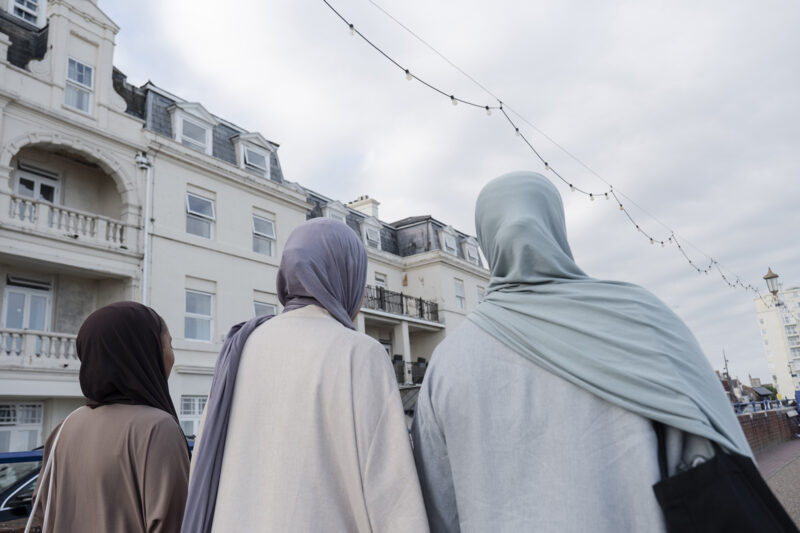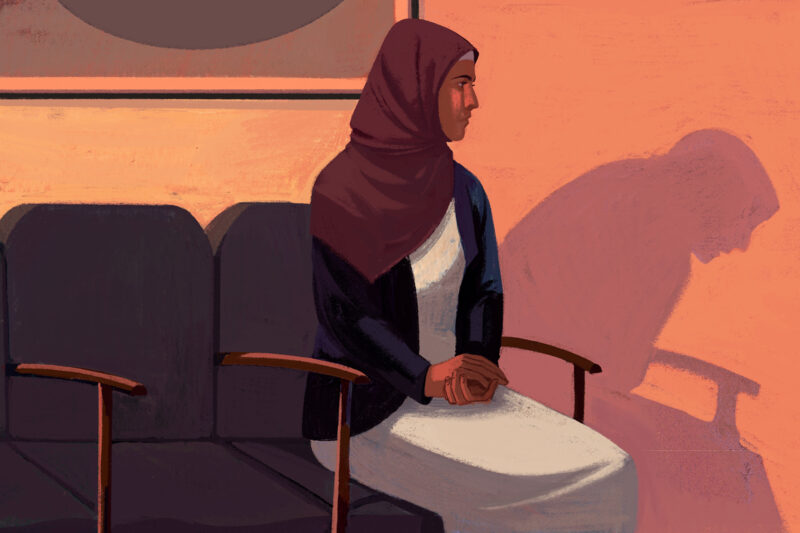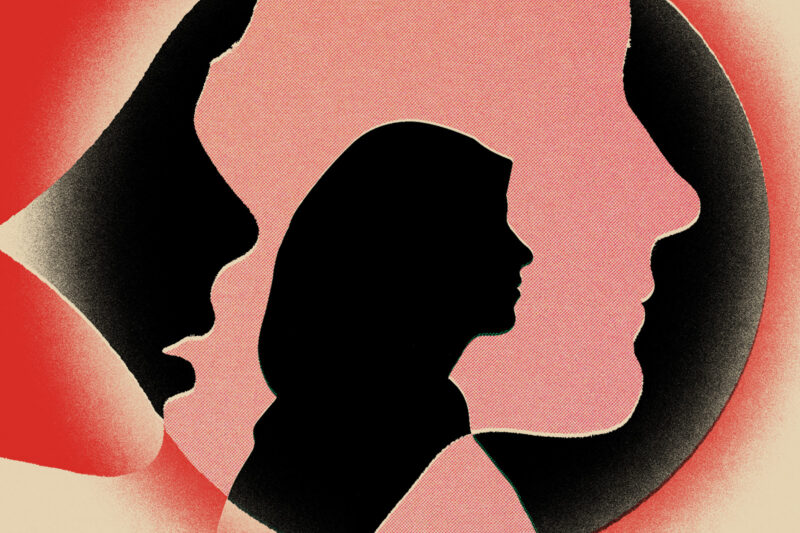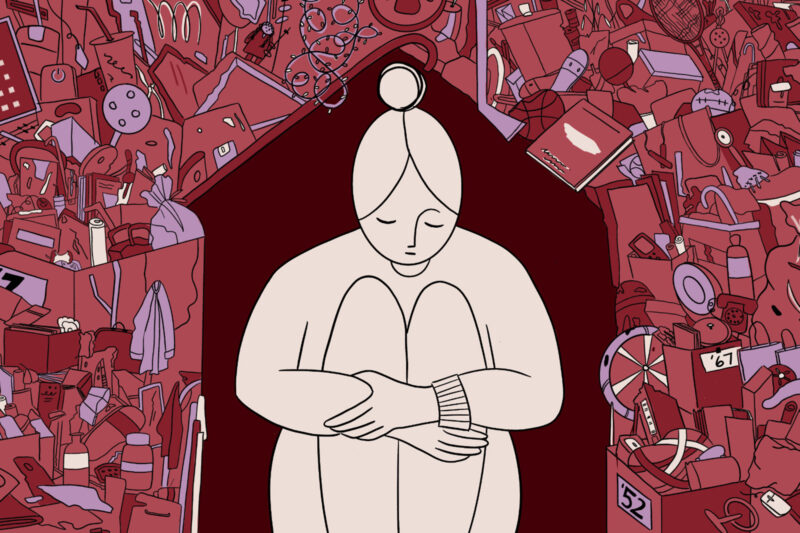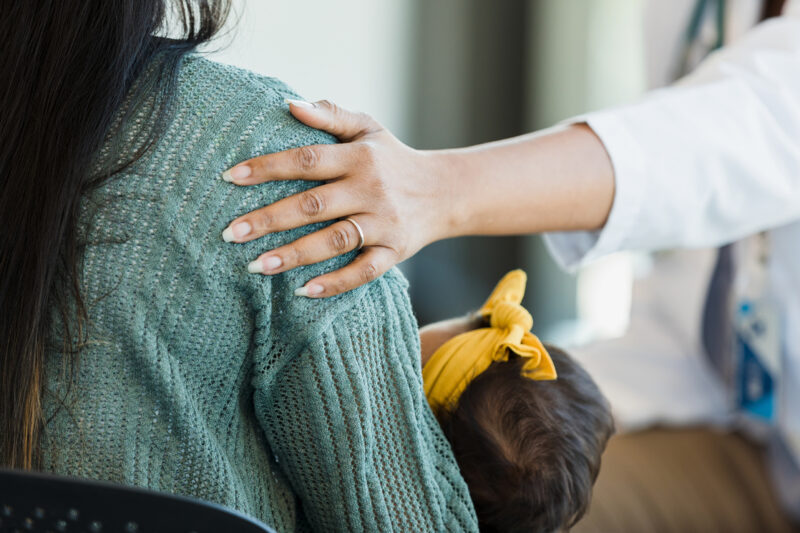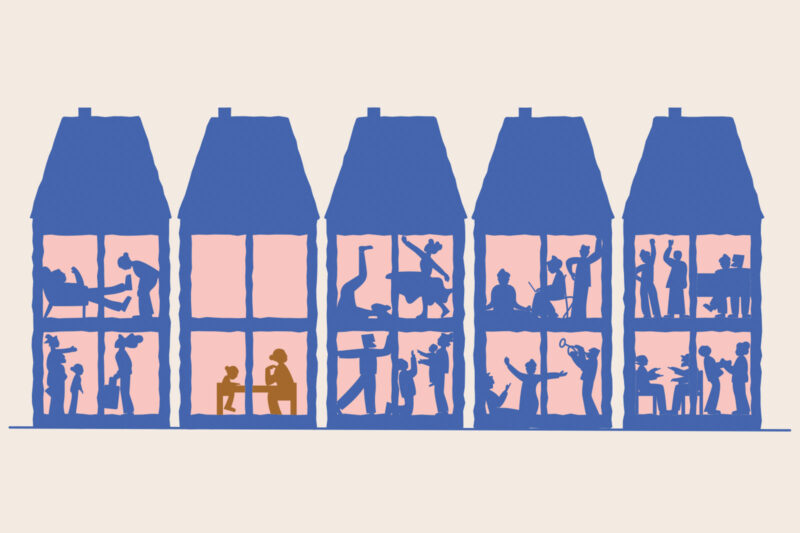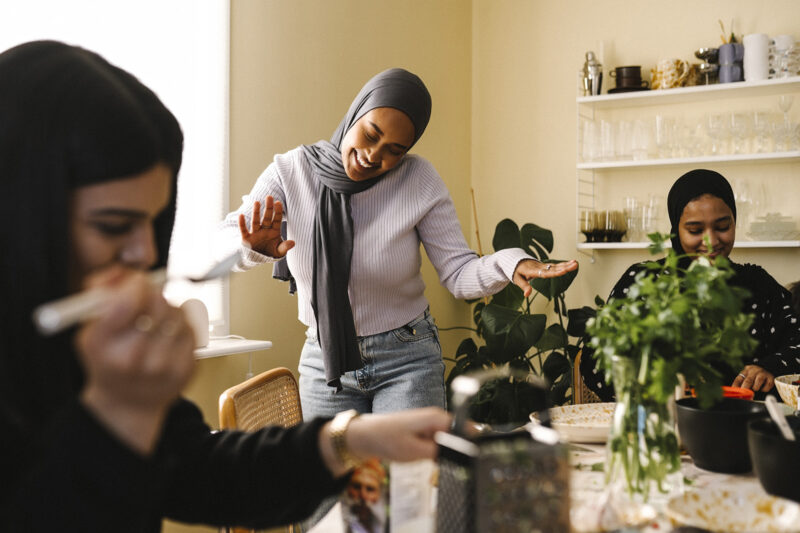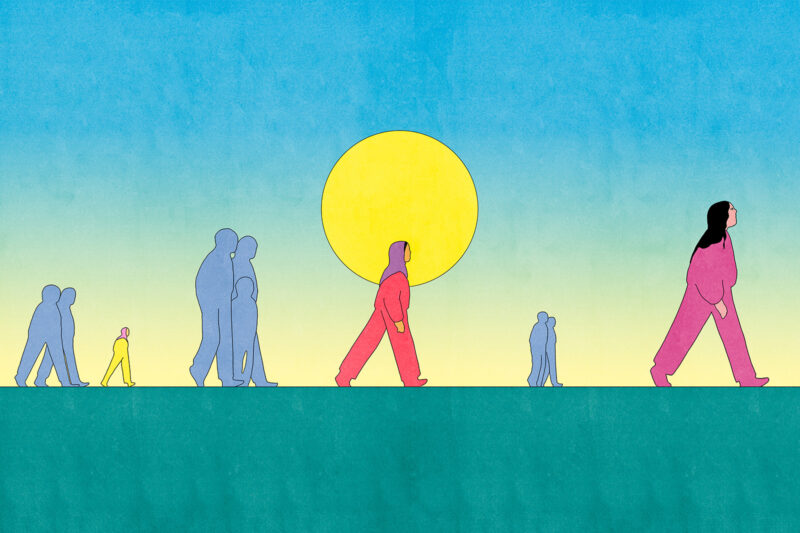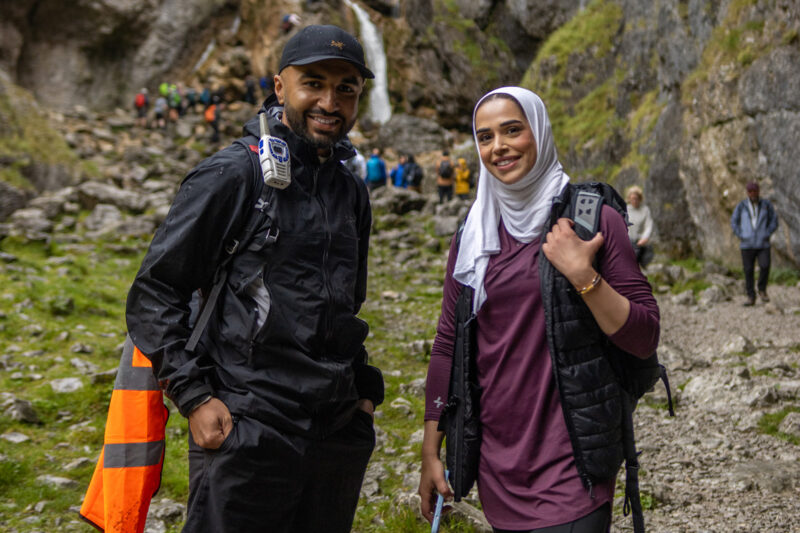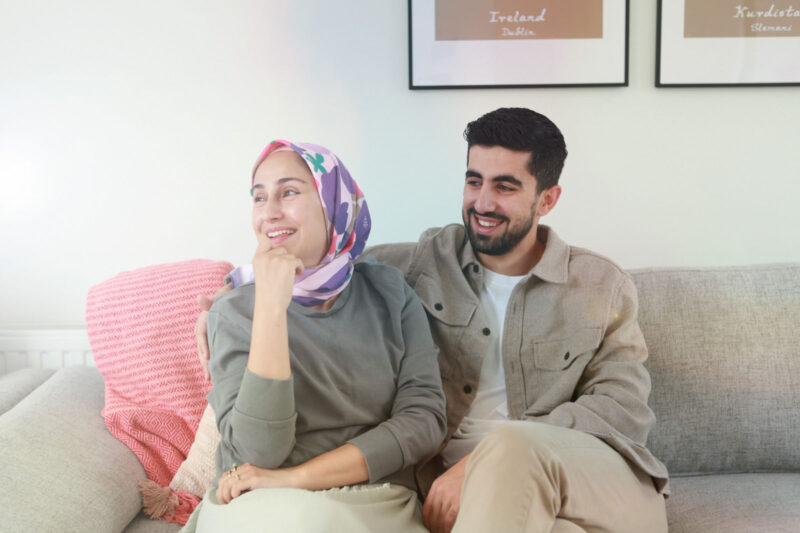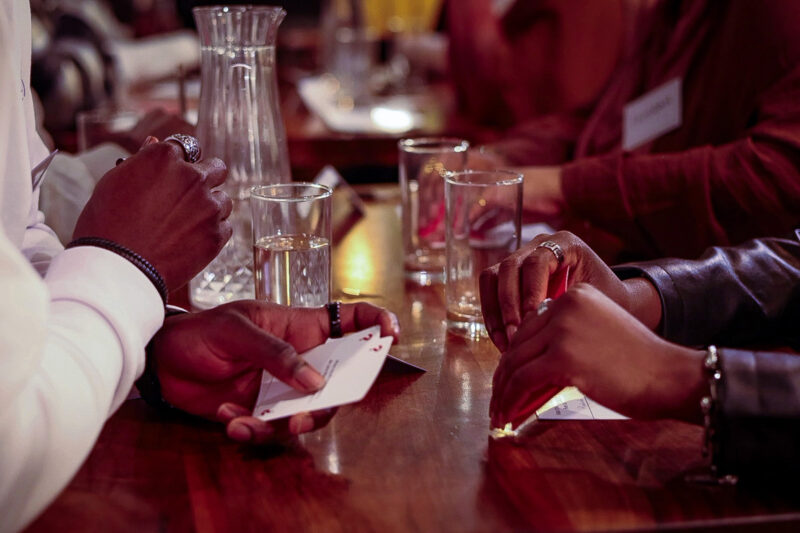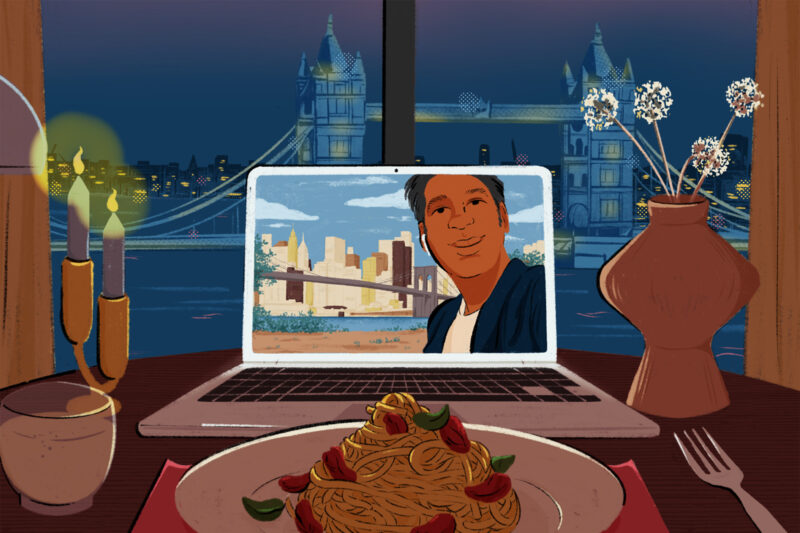‘He started blackmailing me for money and sex’
An increase in the use of matchmaking apps has led to rising reports of intimidation, harassment and sexual assault
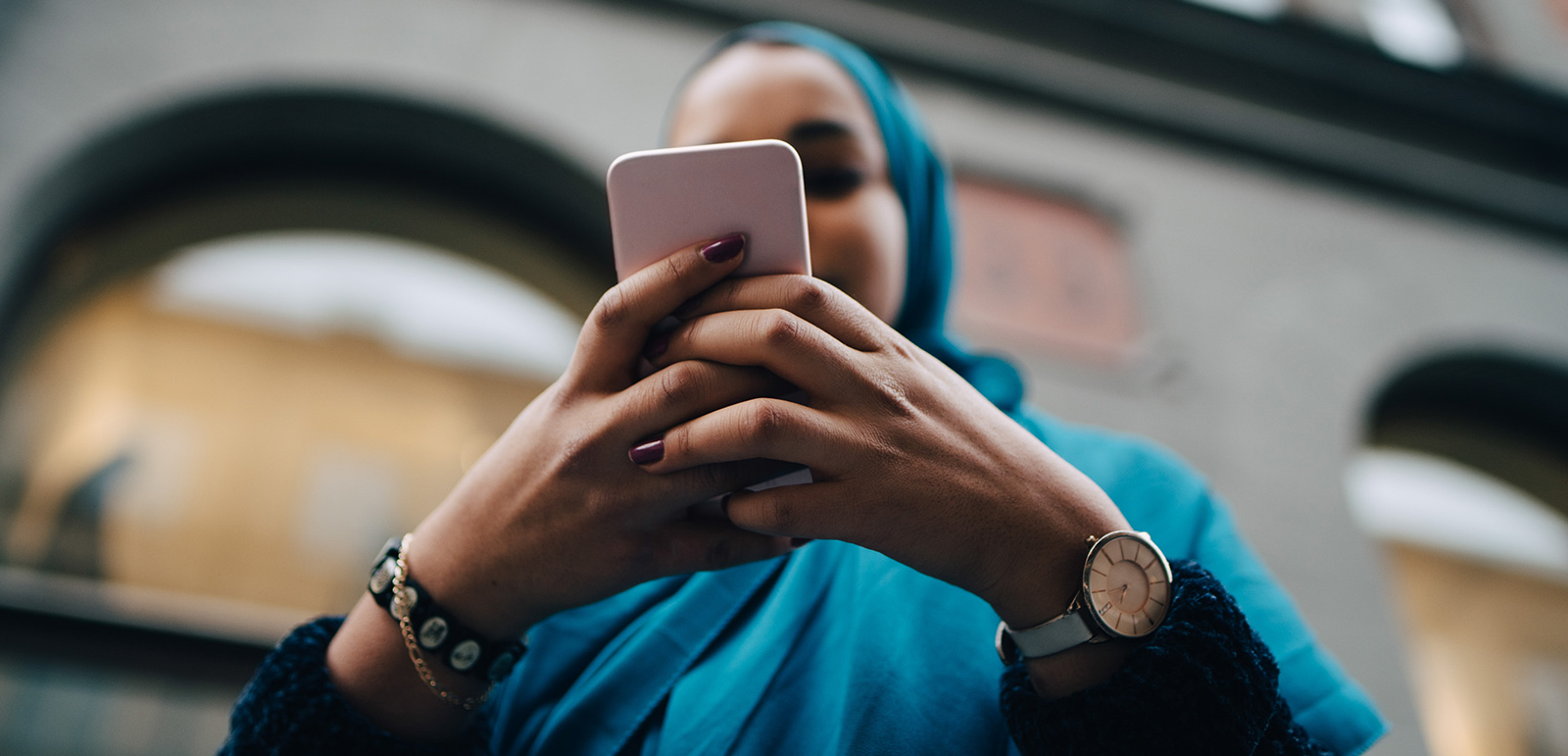
Ayesha was 25 when she was raped by a man she had met on a Muslim dating app. The trainee teacher from Luton told me the attack took place in February during her first in-person date and that she now has panic attacks and has begun to self-harm.
She later discovered that her attacker had already been banned from the platform, but had rejoined using a new identity.
“One guy seemed genuine and so we decided to meet up for dinner,” she said. “He picked me up from the station, then asked if we could go back to his flat because he’d forgotten his wallet. Normally, alarm bells would ring, but we’d been talking for a long time so I trusted him. When we got to his flat, he raped me.”
Ayesha is one of more than 30 Muslim women who responded to my call out on Twitter and told me that they have been harassed by men on matrimonial websites and apps.
They have detailed experiences ranging from catfishing — where a person creates a fictional persona or fake identity on a social networking service — to stalking and sexual assault. A number have also said they had been duped into agreeing to a nikaah (Islamic marriage) for sex.
For millions of single Muslim men and women in the UK and elsewhere, websites and apps such as Salams App, SingleMuslim and Muzz (formerly Muzmatch) have replaced traditional models of offline matchmaking. Like many non-Muslims, single Muslims can now access thousands of potential partners with just one click.
These online networks have allowed Muslim women to take a more active role in finding a partner, in a way that remains in keeping with their cultural preferences and religious beliefs. Yet even online spaces defined by Islamic values are not safe from predatory behaviour.
Khadijah, a 29-year-old make-up artist from Birmingham, first began using matrimonial apps in March “just to see what was out there”. After a while, she met a man who she felt a strong connection with.
“You hear people talk about whirlwind romance. I thought that was just something you see in Bollywood films, until I met Amir,” she said. “Everything happened so quickly and I thought this was love.”
Khadijah had been dating Amir for six weeks when he asked her to send him intimate pictures of herself.
“I was unsure, but then he said that if I was truly committed, I would trust him,” she said. “It started off just dressing in a sexy way, but then he started pushing me to take intimate photos.
“It sounds stupid now, but half the reason I sent them was to stop him hounding me or giving me the silent treatment. I wear a hijab, so it was a big deal for me, but we were talking seriously of marriage, so I thought of him as my husband.”
When Amir later became controlling and abusive, Khadijah tried to end the relationship.
“He threatened to send the images to my family and work,” she explained. “He started blackmailing me for money and sex. It was all a game for him. Once, I was at my brother’s wedding and he deliberately messaged saying to meet him for sex, because he knew how hard it would be to sneak out.”
Amir has continued to coerce Khadijah by threatening to tell her family.
“The first time, he said that if I have sex with him he would stop, so I did it. But then he carried on blackmailing me,” she said. “I’ve lost all the money I was saving and every time I get a message from him, I feel literally sick. Being touched by him feels like being raped. I’m just getting deeper and deeper into it and I don’t know how to get out.
“I can’t go to the police because I am terrified my family and the community will find out. He said that if I report it, he will post my images on porn sites. I don’t know what to do and am constantly living in fear.”
Ayesha says her rape has left her scarred for life. “I don’t know if I can ever get married after this as I can’t stand to be near any man. Even if I do get married, I will always have the fear that my husband will find out about my past.”
She has also refused to report her rapist to the authorities, for fear of the potential effect on her loved ones. “I couldn’t go to the police in case my family found out,” she said. “Also, people in the community would think I was a slut. I reported him to the app, but they said they couldn’t do anything about it. I’m scared in case he does it to someone else.”
The companies responsible for running matrimonial apps insist that user safety is a top priority and often cite their use of technology to protect subscribers and their personal data
Muzz, which says that it has six million users worldwide, deploys a number of automated safety measures, including phone and facial recognition verification and a team of moderators to deal with reports of inappropriate behaviour.
“The tricky thing is that often with a serious offence, it’s reported to us after the fact,” said Shahzad Younas, Muzz’s CEO and founder. “In that instance we advise the person to go to the police. Plenty of times we have assisted the police with data requests and provided them with information on the individual. For us, it is in our interests that individuals who have done bad things are caught and punished.”
Cyber security experts, however, believe that it is far too easy for predators to bypass the safety measures put in place by many platforms.
“They are often so minimal that they take no more effort to avoid than setting up a free email address, and maybe using a proxy to disguise location,” said James Bore, director of Bores Security Consultancy. “Even methods such as demanding a mobile phone number are easy and cheap to work around with modern technology, such as virtual numbers.”
That makes harassment an everyday hazard for many women online. Almost all of the women interviewed for this article reported that they had been sent inappropriate messages by men. Sarah Harris, 25, a student from Nottingham, said that she has lost count of how many inappropriate messages she has received, because she deletes them immediately. She added that many of the men have tried to initiate sexually explicit conversations or implied that she led a sexually promiscuous lifestyle.
“I don’t think apps do enough to safeguard women,” Harris said. “I know multiple women who have been harassed and nothing is done about it. The most that happens is they have their profile deleted, but what’s to prevent these men setting up a new profile under a new name?”
Still, she continues to use the apps, and hopes that she will, one day, be able to find love online.
“Even though I’ve had bad experiences, there are such limited options as a Muslim woman in the west when it comes to looking for a partner,” she said. “So, I have no choice but to carry on and filter out all the men who aren’t taking it seriously.”
Some names have been changed. Support for rape and sexual abuse can be found by calling Rape Crisis on 0808 802 9999 in England and Wales, 0808 801 0302 in Scotland or 0800 0246 991 in Northern Ireland.
 Newsletter
Newsletter


